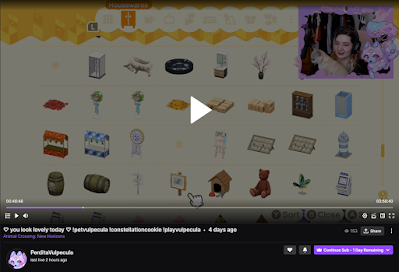What is the Gift Economy?
To put it into simpler terms, its an exchange between people isn’t with tangible
goods under certain conditions, but rather given as gifts without explicit
agreements or future rewards.
Some examples would be video
gamers receiving donations while they stream, or people who use Only Fans to
generate money through donations. But is there such thing as a gift transaction
without the obligatory feeling of having to give a gift in return or continue
giving gifts to our favorite influencers? Another question to ask is how much
does the gift economy build community between fans and companies/influencers?
Photo
by Donald
Tong from Pexels
With some platforms, the
gift economy may feel more obligatory. For example, anyone can create a Twitch
account and stream themselves gaming, and they can receive donations from the
people they watch! The same thing goes for YouTubers with paid sponsorships or
ads that are set to play during their videos. If you watch the ad all the way through,
then they receive a donation from that ad.
Another way that
influencers get a larger outreach would be from their fans! Above is a picture
of Naruto cosplayers. The reason I wanted to tie cosplayers into the idea of
the gift economy is because they are inadvertently helping/giving to the
franchise they love! When others see a picture like this, and they’re
interested in the reason behind their costumes and poses, they may look into
the Anime itself, giving it more viewers. But there is a flip side that all too
many fans have experienced.
The Social Exchange
theory basically says that if the costs of the relationship are higher than the
rewards then that relationship has to end. Some institutes with a large fan
base and influencers find that their fans are valuable, in more than one way.
Some followers of popular movie or TV show fandoms like to create their own
spinoffs of their favorite characters, but this may come with a cost. If their
spinoff gains popularity online, then they may get sued by the original show/TV
series. This caused a quarrel between the Gift Economy
Theory and an Instrumental relationship.
This
circumstance requires a fan, who has made many gifts to their beloved fandom,
to pay a fine over their recreation of their passion. This brings ethics into
the equation. Are our gifts actually optional or do they come off as
obligatory?
Photo
by Polina
Sirotina from Pexels
The gift economy can make
you feel guilty. Plain and simple. Take churches for example, they have aa
large following and support group, but at the end of the day we have to remember
that they have employees to pay for their services too. So churches my pass
donation plates around after a sermon about giving and helping one another.
This altercation can make gift giving feel transactional, so is it still a
gift? Or take one of my previous examples of Only Fans. This app allows people to pay subscriptions to certain individuals for explicit pictures. Some view this as a gift, but some people rely so heavily on these subscriptions and donations that they use it as a primary source of income. When one of their followers unsubscribe or fail to make a payment, it could be devastating to them, causing the donor to feel guilty for failing a direct line of contact.
So, what is the gift
economy? Its not so simple after looking at it all. The gift economy exists in certain
situations, but everyone views transactions differently, therefore there are
different theories behind it.
















